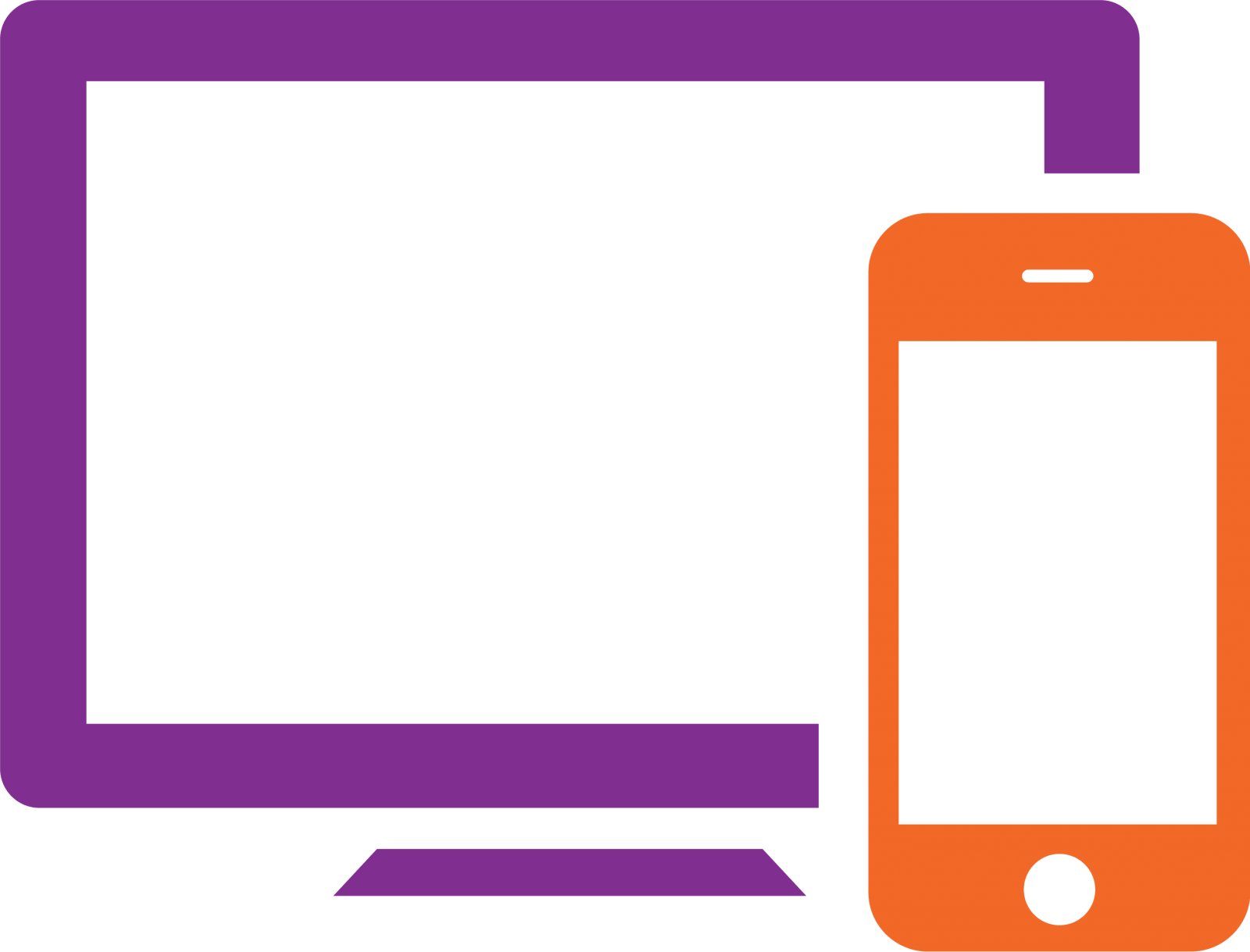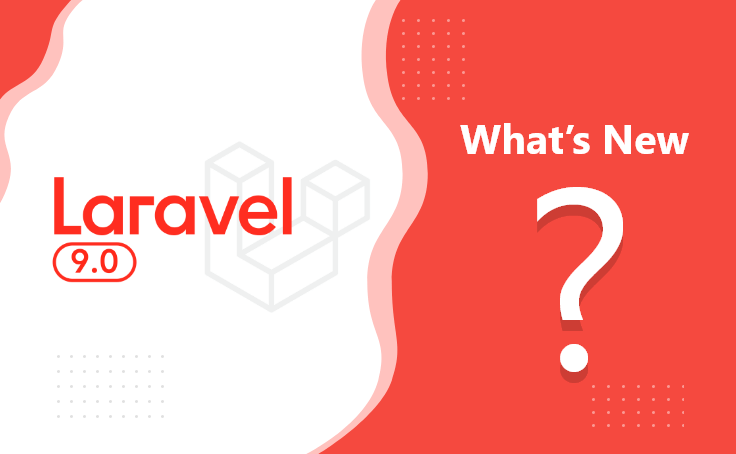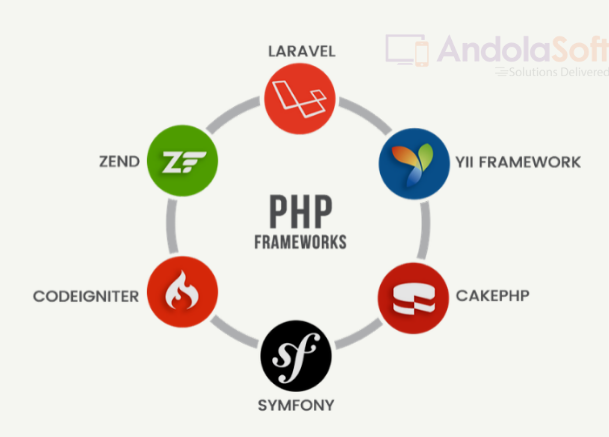In the dynamic world of web development, staying ahead requires the use of robust frameworks that facilitate efficient app development. Laravel application development has gained immense popularity for its elegant syntax, powerful features, and extensive community support.
In this guide, we’ll delve into the core aspects of Laravel, exploring its features, benefits, and why it’s a top choice for modern web application development.
Contents
What is Laravel?
It is an open-source PHP framework known for its elegance and simplicity. It provides developers with a toolkit for building web applications following the Model-View-Controller (MVC) architecture.
With Laravel, the process of creating scalable and maintainable applications is streamlined, making it an ideal choice for both beginners and experienced developers.
Top Stats and Facts about Laravel
- GitHub Stars:
It has amassed over 70,000 stars on GitHub, making it one of the most starred PHP repositories and showcasing its strong community support and adoption. - Developer Satisfaction:
According to the 2020 Stack Overflow Developer Survey, it was among the top 5 most loved frameworks, with 72.1% of developers and Laravel development companies expressing satisfaction with it. - Google Trends:
As of recent data, it consistently maintains a strong presence in Google search trends, reflecting ongoing interest and adoption by developers around the world. - Laracasts Subscribers:
Laracasts, an online learning platform focused on Laravel, boasts over 50,000 subscribers, highlighting the demand for quality tutorials. - Package Downloads:
The PHP package repository has been downloaded over a billion times, underscoring the widespread usage of its ecosystem. - Forge Users:
Laravel Forge, a server management tool for its applications, has served over 1 million websites, showcasing its utility and adoption in deployment workflows. - Nova Adoption:
Laravel Nova, an administration panel for over 30,000 licenses sold within a year of its launch, highlighting its popularity. - Meetups:
Its global community hosts hundreds of meetups worldwide, providing a platform for developers to learn, share experiences, and network. - Conference Attendees:
Laracon, an annual conference, attracts thousands of attendees from different parts of the world, demonstrating the worldwide interest in Laravel.
How Big is the Laravel Community?
The community is a vibrant and inclusive ecosystem of developers, enthusiasts, and experts who share a common passion for the Laravel PHP framework.
Known for its welcoming nature and collaborative spirit, the community actively contributes to the growth and advancement of the framework.
It offers a wealth of resources, including extensive documentation, tutorials, forums, and social media groups, where members can learn, share insights, and address challenges.
The community plays a vital role in shaping the framework’s direction by offering feedback, suggesting improvements, and creating valuable packages and extensions.
Reason To Choose Laravel By Website Owners and PHP Developers
Why Do PHP Developers Love Laravel?
- Rapid Application Development:
Its built-in features, templates, and tools expedite the development process, allowing developers to create functional applications quickly. This feature is particularly beneficial for Laravel development services to meet project deadlines and respond to business needs promptly. - Robust Ecosystem and Community Support:
The ecosystem offers a wealth of pre-built packages, extensions, and libraries that cover a range of functionalities. The active and supportive community provides extensive documentation, tutorials, and forums, facilitating continuous learning and troubleshooting. - Modularity and Code Reusability:
Its modular architecture encourages developers to break down Laravel applications into smaller, reusable components. This promotes efficient code organization, reduces redundancy, and simplifies maintenance and updates. - Modern Practices and Security Emphasis:
It aligns with modern development practices and emphasizes security features such as hashed password storage, data validation, and protection against common web vulnerabilities. This focus on security provides developers with confidence in building secure applications.
Why Website Owners Love Laravel?
- Rapid Development and Time-to-Market:
Its built-in features, pre-built templates, and developer-friendly tools accelerate the Laravel website development process.
This allows business owners to launch their websites quickly, getting their products or services to market faster and gaining a competitive edge. - Scalability and Future Growth:
Laravel’s modular architecture and code organization make it easy to scale websites as businesses grow. Business owners can add new features, functionalities, and sections without facing major disruptions to the existing website structure. - Customization and Unique Branding:
Its flexibility allows business owners to create highly customized and unique websites that align with their branding and user experience requirements. This level of customization helps businesses stand out in the crowded digital landscape. - Security and Data Protection:
Its security features, including hashed password storage, protection against cross-site scripting (XSS), and SQL injection prevention, offer robust protection for sensitive business data and customer information. This helps build trust among users and enhances data security. - Community Support and Cost-Efficiency:
The Laravel community offers extensive documentation, resources, and pre-built packages that business owners can leverage to enhance their websites without reinventing the wheel. This community support reduces development time and costs, making Laravel a cost-effective solution.
What are the Top Features of Laravel?
- Elegant Syntax and Developer-Friendly Tools:
Its elegant and expressive syntax is a hallmark feature. It promotes clean and readable code, making collaboration and maintenance a breeze. Additionally, the framework provides developer-friendly tools like Artisan, a powerful command-line interface that automates tasks and accelerates the Laravel development workflow. - Blade Templating Engine:
The Blade templating engine is a standout feature that simplifies view creation. With features like template inheritance, conditional statements, and loops, Blade empowers developers to build dynamic and reusable templates. This enhances code organization and reduces redundancy in views. - Eloquent ORM (Object-Relational Mapping):
Eloquent ORM, simplifies database operations by representing database tables as classes. Its fluent syntax allows developers to interact with databases using intuitive methods, eliminating the need for complex SQL queries.
Eloquent also handles relationships between tables effortlessly, enhancing code readability. - Integrated Authentication and Security:
It comes equipped with integrated authentication scaffolding, enabling developers to implement user authentication and authorization effortlessly.
The framework also offers robust security features, including hashed password storage, data validation, and protection against cross-site scripting (XSS) attacks. This makes Laravel development services one of the most sought after technologies by website owners. - Modularity and Composer Integration:
The framework embraces a modular approach, allowing developers to break down applications into smaller, reusable components. This modularity enhances maintainability and code reusability.
Composer, a PHP package manager, seamlessly integrates external packages and libraries, promoting a more efficient Laravel development process. - Routing and RESTful Resource Controllers:
It simplifies routing with its clear and expressive syntax. It offers resource controllers that expedite the creation of RESTful APIs, reducing the effort required for common CRUD (Create, Read, Update, Delete) operations. - MVC Architecture and Separation of Concerns:
Laravel follows the Model-View-Controller (MVC) architecture, promoting a clear separation of concerns. This separation enhances code maintainability, scalability, and collaboration among developers working on different parts of the application. - Testing and Debugging Tools:
It encourages robust application development with built-in testing support. Developers can write unit and integration tests to ensure the application’s reliability. The framework also includes PHPUnit integration and Dusk for browser testing. - Lively Community and Extensive Documentation:
Its active community contributes to its growth by providing extensive documentation, tutorials, forums, and packages. The community-driven nature ensures that developers have a wealth of resources for learning, sharing insights, and troubleshooting issues. - Innovation and Forward Compatibility:
Laravel is known for its innovative features and continuous updates. The framework remains aligned with modern development practices and industry trends, ensuring that developers have access to the latest tools and capabilities.
What are the Top Benefits of Laravel?
Excellent Performance even under High Pressure Load:
Laravel excels in delivering outstanding performance even when applications face high-pressure loads. This is largely attributed to Laravel’s use of the Blade templating engine, which compiles templates into optimized PHP code.
Flexibility:
One of Laravel’s standout features is its flexibility, allowing
Business owners design a web app tailored to their specific needs. The framework enables developers to modify individual components without disrupting the entire application’s functionality.
Easy Maintenance:
Laravel’s emphasis on clean and readable code significantly simplifies the maintenance process. This, in turn, reduces the complexity of debugging and updating applications, saving time and resources throughout the application’s lifecycle.
Better Performance With Caching:
Caching plays a pivotal role in enhancing web application performance. Laravel offers a robust caching system that supports various drivers, including file, database, and in-memory caching. This facilitates Website owners to build web apps that have faster response times and improved overall performance.
What Are The Pros and Cons of Laravel PHP Framework?
Laravel, as a popular PHP web framework, comes with a set of pros and cons that developers should consider when choosing it for their projects.
Here’s an overview of the advantages (pros) and disadvantages (cons) of using Laravel:
Pros of Laravel:
- Modularity and Code Reusability:
Its modular structure promotes code reusability, making it easier to manage and maintain applications. - Integrated Authentication and Security:
Laravel includes authentication scaffolding and security features, helping developers implement user authentication and protect against common vulnerabilities. - Composer Integration:
Its integration with Composer streamlines package management, enabling easy inclusion of third-party libraries. - Active Community and Documentation:
The vibrant community offers extensive documentation, tutorials, and support, aiding developers with resources and solutions. - Testing and Debugging Tools:
The PHP framework promotes testing with built-in support for unit and integration tests, ensuring application reliability. - Innovation and Modern Practices:
It stays up-to-date with industry trends, introducing new features and updates that align with modern development practices.
Cons of Laravel:
- Learning Curve:
Beginners may face a learning curve due to its rich feature set, although comprehensive documentation and resources are available. - Performance Overhead:
Laravel’s abstraction layers can introduce slight performance overhead in complex applications, although advancements are continually made to optimize performance. - Breaking Changes:
Major version upgrades might introduce breaking changes, requiring adjustments in existing codebases during updates. - Customization Complexity:
The framework streamlines development, extensive customization might require a deeper understanding of the framework. - Resource Intensiveness:
The framework features and tools can require more server resources, affecting hosting costs and infrastructure decisions. - Dependency Management:
The use of third-party packages can lead to potential version conflicts and dependency management challenges. - Less Suitable for Small Projects:
For very small projects, the framework feature set might be overkill, and a simpler framework might be more appropriate. - Overhead for Simple Tasks:
For simple tasks, its comprehensive features might add unnecessary complexity and overhead.
Are you looking for a Laravel developer
Ultimately, the decision to use the technology should be based on the specific project’s requirements, team’s familiarity with the framework, and the balance between its benefits and drawbacks.
List of Popular Websites Developed on Laravel
- Laracasts: Laracasts, an online learning platform for web developers.
- Invoice Ninja: Invoice Ninja is an open-source invoicing application.
- Asana Rebel: Rebel is a healthy lifestyle web app.
- MasterClass: MasterClass offers online classes with experts.
- Laravel Official Website: The official website of Laravel itself is a prime example of a site built on the framework.
- Lirio: Lirio, a behaviour change AI platform, leverages the platform to deliver solutions for improving human behaviour and well-being.
- World Walking: World Walking promotes physical activity and well-being through its platform.
- Crowdcube: Crowdcube, a popular crowdfunding platform, uses the technology to facilitate investment and fundraising.
- Barchart: Barchart provides market data and financial technology solutions.
Tips To Hire Laravel Developers
Hiring expert Laravel developers can significantly impact the success of your web development projects. Here are ten essential points to consider when looking to hire skilled Laravel developers:
- Define Project Requirements:
Clearly outline your project’s scope, goals, and technical requirements. This will help you communicate effectively with potential candidates and ensure they understand the project’s objectives. - Laravel Expertise:
Look for developers with proven experience and expertise in Laravel development. Assess their portfolio, past projects, and contributions to the Laravel community to gauge their skills. - Technical Proficiency:
Evaluate candidates’ technical skills in Laravel, including their knowledge of Laravel’s features, Eloquent ORM, Blade templating, routing, and Laravel’s ecosystem of packages. - Problem-Solving Skills:
Laravel developers should be adept at troubleshooting and solving complex coding challenges. Assess their problem-solving abilities through technical assessments or coding exercises. - Communication Skills:
Effective communication is crucial for successful collaboration. Ensure Laravel experts can clearly articulate their ideas, understand your requirements, and provide updates throughout the development process. - Adaptability:
Laravel developers should be able to adapt to evolving project needs, integrate third-party tools, and leverage Laravel’s extensive ecosystem to optimize project development. - Attention to Security:
Laravel emphasizes security features, so hire developers who prioritize secure coding practices, including protecting against vulnerabilities like SQL injection and cross-site scripting (XSS). - Teamwork and Collaboration:
Evaluate developers’ ability to collaborate and communicate effectively. Team players who can contribute to discussions, share insights, and collaborate effectively are invaluable. - Problem-Solving Mindset:
Laravel developers should possess a problem-solving mindset, capable of identifying potential bottlenecks, performance issues, and optimization opportunities throughout the development lifecycle. - Review Past Projects:
Review past projects developed and delivered by the Laravel development agency. Checkout testimonials and reviews given by their customers to better gauge the expertise of the company.
Andolasoft is a premier Laravel development company dedicated to crafting innovative web solutions that empower businesses to thrive in the digital landscape.
With a deep-rooted commitment to excellence, Andolasoft combines its technical prowess, industry insights, and a passion for innovation to deliver high-quality Laravel applications.
Conclusion
The framework’s popularity in the PHP ecosystem can be attributed to its modern features, developer-friendly syntax, and active community.
Its rapid development capabilities, robust security, and rich ecosystem of packages make it an ideal choice for web application development.
If you are looking to craft engaging web apps for your business’s digital presence hire professional Laravel developer services.
By choosing Laravel, developers and businesses can craft sophisticated web applications that deliver an exceptional user experience.
Frequently Asked Questions
Q1: What are the Requirements of Laravel Development?
To embark on a successful Laravel project, you’ll need a server that meets certain criteria. Firstly, ensure that your server supports PHP, specifically version 7.3 or higher.
Additionally, Laravel requires several PHP extensions, including OpenSSL, PDO, Mbstring, Tokenizer, XML, and Ctype extensions. A compatible database management system, such as MySQL or PostgreSQL, is essential to store and manage your application’s data.
A web server like Apache or Nginx, configured to route traffic to your Laravel application’s public directory, is necessary for serving your application to users.
Q2: What is the Difference Between Laravel and PHP?
Laravel and PHP are related but distinct entities in web development. PHP is a scripting language used for building dynamic web applications. Laravel, on the other hand, is a PHP framework that sits on top of PHP.
It offers a structured and organized way to develop web applications by providing pre-built tools, libraries, and features that simplify common tasks and promote efficient coding practices.
Q3: How does Laravel enhance code maintainability?
It follows the Model-View-Controller (MVC) architecture, promoting a clear separation of concerns. This separation enhances code maintainability by compartmentalising different aspects of the application, making it easier to manage and update code without affecting other components.
Q4: How does Laravel foster rapid application development?
The framework fosters rapid development through its integrated features, such as the Blade templating engine, routing system, Artisan command-line tool, and packages that automate common tasks. These tools expedite development, enabling Laravel application development companies to create applications efficiently.
Q5: How Andolasoft develops Laravel Applications?
Andolasoft develops Laravel applications through a systematic and collaborative approach that encompasses various stages of the development lifecycle.
The development process involves coding and optimizing the application for performance and scalability. We perform extensive testing to ensure that the application is bug-free and functions seamlessly.
Andolasoft’s team of expert Laravel developers follows best practices, adheres to coding standards, and maintains clear communication with the client throughout the project.












